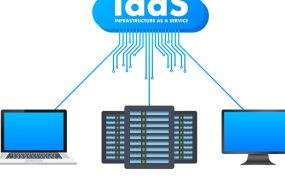
The digital landscape is in constant flux, with innovations and trends in database cloud hosting playing a pivotal role in shaping the future. As we enter 2022, it’s crucial to stay ahead of the curve. In this comprehensive guide, we explore the most influential trends and innovations that are set to redefine the world of database cloud hosting in the coming year.
Embracing Database-as-a-Service (DBaaS)
Streamlining Database Management
The adoption of DBaaS is on the rise, allowing organizations to offload database management tasks to cloud service providers. This trend will continue to simplify the management of databases, leading to increased operational efficiency.
Scalability and Elasticity
One of the key attractions of DBaaS is its scalability. Organizations can easily scale their databases up or down based on demand, ensuring that they have the resources they need when they need them.
The Role of Serverless Databases
Cost Efficiency
Serverless databases are gaining traction due to their cost-efficiency. They enable organizations to pay only for the resources they consume, making them a viable choice for businesses looking to optimize costs.
Automated Scaling
Serverless databases automatically handle the scaling of resources, ensuring that applications are never underprovisioned or overprovisioned. This provides a seamless user experience and reduces administrative overhead.
Integration of Artificial Intelligence (AI)
Data Analytics and Predictive Insights
AI-powered analytics will become more integrated into database cloud hosting, allowing organizations to extract deeper insights and predictive analytics from their data. This will empower businesses to make data-driven decisions with confidence.
Enhanced Security
AI will play a crucial role in enhancing database security by identifying and mitigating potential threats in real-time. This proactive approach to security will be a game-changer in protecting sensitive data.
Quantum Computing on the Horizon
Unlocking Unprecedented Speed
Quantum computing is still in its infancy, but its potential to revolutionize data processing is immense. As this technology matures, it may pave the way for ultra-fast data processing, particularly in the realm of complex simulations and scientific research.
Data Encryption and Decryption
Quantum computing also poses challenges to data security. However, it has the potential to create unbreakable encryption methods, ensuring that sensitive data remains confidential.
Data Privacy and Compliance
Stricter Data Regulations
With an increasing focus on data privacy, we can expect to see stricter regulations and compliance requirements. Organizations will need to invest in robust data protection measures to ensure they adhere to evolving legal standards.
Data Ethics and Transparency
Ethical considerations around data usage will gain prominence. Companies will need to be transparent about their data practices and ensure they use data in a responsible and ethical manner.
Final Words
The future of database cloud hosting in 2022 promises to be both exciting and challenging. As technology continues to evolve, businesses that adapt and leverage these innovations will be best positioned for success in an increasingly data-driven world.
Commonly Asked Questions
Q1: What is Database-as-a-Service (DBaaS), and how does it work?
DBaaS is a cloud computing service that provides database management and maintenance. It allows organizations to access and manage databases through cloud providers, simplifying database operations.
Q2: How does serverless database differ from traditional databases?
Serverless databases do not require users to manage server infrastructure. They automatically handle resource scaling, reducing administrative tasks and costs.
Q3: What is the impact of quantum computing on database hosting?
Quantum computing has the potential to significantly accelerate data processing and encryption. It may enable new levels of speed and security in data hosting.
Q4: How can businesses prepare for stricter data regulations?
To prepare for stricter data regulations, businesses should invest in data protection measures, conduct regular compliance audits, and stay informed about evolving legal requirements.
Q5: Why is data ethics important in database cloud hosting?
Data ethics is crucial to maintain trust and integrity. It ensures that data is used responsibly and transparently, mitigating potential ethical concerns and legal issues.
Advertisement







